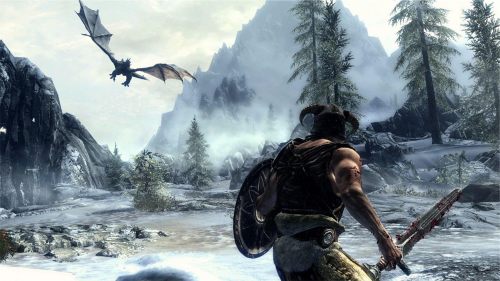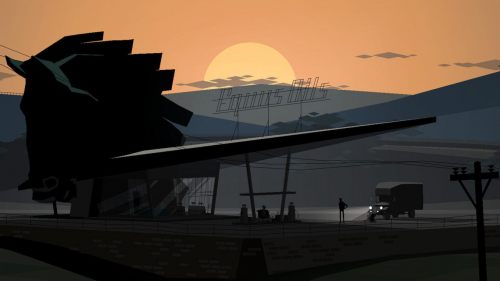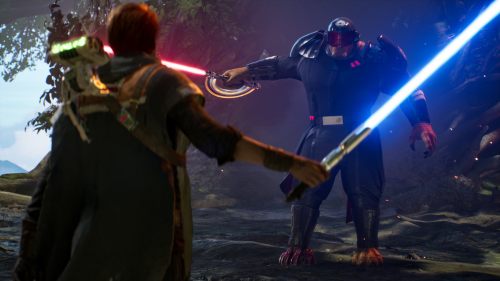WE HAPPY FEW Game Review: Breaking Sad
We Happy Few has come a long way from its early-access days. Developed by Montréal-based indie studio (now Montréal-based Microsoft subsidiary) Compulsion Games, an alpha version launched literally years ago, a procedurally-generated survival sim that never really lived up to its unique art style. Several money injections later, We Happy Few is now a narrative-heavy game with style to spare. But its many triumphs are nearly equalled by its many irritating quirks - thanks, in all likelihood, to its two-pronged development process.
Set in England, We Happy Few takes place in an alternate 1960s in which the United States and Russia never allied with Britain, and Germany quickly ran rough-shod over poor Blighty - only leaving when Britain handed over all its under-13 children. Now, England is a dystopia based around a compulsory drug called “Joy” that suppresses and erases memories of that great national shame. This isn’t the boisterous alternate history of Wolfenstein, but something more sad and maudlin - a world in which everyone simply chose to forget their complicity in the Reich’s victory. Ignorance is bliss, and Joy is ignorance. As a post-WWII story, the notion of a country trying to deny its shameful past is a pretty weighty one.
The visual design of We Happy Few is so strong, it’s likely sold a number of copies all by itself. Hints of BioShock’s twisted opulence abound, but filtered through the groovy, psychedelic ‘60s rather than the Art Deco ‘20s. Vibrant colours and mod clothing dominate the bourgeois, Joy-infused cities, while the ruined "Downer" settlements project a bombed-out, plague-ridden vision of bucolic English countryside towns. Towering, masked police bobbies; creepy, trenchcoated doctors; and prowling, hovering sentry balloons stalk the streets. The combination of sinister and happy-go-lucky evokes Orwell, The Prisoner, Monty Python, and A Clockwork Orange all at once, while uniformly excellent voice acting brings terrific dialogue to life with a frighteningly cheerful rainbow of regional British accents. It’s a breathtakingly complete vision, from characters and environments right down to the smallest props.
All that backstory and more is parceled out, with varying degrees of elegance, by a surprisingly lengthy story campaign broken into three distinct acts. In the first act, you play as Arthur, a government redacter; in the second, basement pharmacologist Sally; in the third, Scottish survivalist Ollie - three stories that smartly intertwine. Each heartbreakingly flawed character has an intriguing story to tell, and more tales to uncover via sidequests: it’s actually overwhelming. Each act takes hours and hours to complete, and despite many delightful missions - infiltrating a leather-and-electrocution fetish nightclub, as an early example - much of the game involves tedious item-fetching and long-distance backtracking. These are good stories - they're just told with wildly uneven pacing.
Where We Happy Few really falls apart is in its moment-to-moment mechanics. None are inherently bad - there’s some genuine innovation on display - but you can feel the game creaking under a multitude of conflicting systems, ambitions, and design principles. We Happy Few wants to be an open-world RPG, a scripted single-player narrative experience, and a systems-driven stealth/survival game all at once, and accordingly, never achieves its potential as any of the three.
Gameplay-wise, the biggest emphasis is on stealth: in this fascist world, you’ll have to either evade the authorities, or blend in as a model citizen. Nonconformity is punished severely, which is thematically on-point, but the game could stand to gain a little wiggle room. There are simply so many reasons why enemies might become hostile - taking out a weapon, trespassing, not saying "hello" often enough, acting strangely, and more - that you’ll often get into situations where everyone in sight suddenly aggros, and you’re left sprinting around for a hiding spot to wait out their cooldown timers. Should you stand your ground, you’ll contend with a clunky first-person melee system, and an even clunkier item-selection system, that’ll make you madder than your enemies.
But We Happy Few's tangled mess of systems goes even deeper. A raft of open-world survival systems mostly serve to irritate, ranging from crafting and inventory management to hunger, thirst, sleep, disease, and other status effects. Each playable character has different stats and unlockable perks, though none of them ever really feel important, while Sally's “motherhood” meter is a cringeworthily simplistic addition to the game's sole playable female character. The one truly relevant peripheral mechanic is the use of Joy, which alters graphics, sound, animation, and gameplay, and actually factors into the game's themes. But even that becomes mechanical and rote eventually.
Added to that is a vast array of weird, annoying behaviours and glitches. Each new act (and new character) resets all your progress - perks, map fog, fast-travel points, recipes, inventory, everything. Upon death or reload, the game spawns you in seemingly arbitrary locations far from where you died. Betraying the game’s procedurally-generated origins, city layouts feature weird empty corners; venture outside them, and you’ll find nothing but ugly rear-ends of buildings, with signs facing roads that aren’t there. Character movement often gets caught on random objects, or you’ll do a climbing animation to mount a ledge no higher than a street kerb. And most hilariously, AI characters frequently warp across the map to reach their mark for a scripted sequence.
It truly pains me to write such damning things about We Happy Few. The world-building, visual presentation, and story are genuinely engaging, building on beloved alt-history games while staking out oddball thematic turf far more consistent than, say, BioShock Infinite. We Happy Few is full of wonderful details that make you laugh, shudder, or spin off into imagination. But that content is buried under a classic case of feature creep and poor quality control, borne of too many ideas and not enough development focus.
I’m willing to bet that were Compulsion to start again from scratch, this would be a legitimately great game. But they didn’t, and can’t; all we have is the heavily-flawed gem that is We Happy Few.



